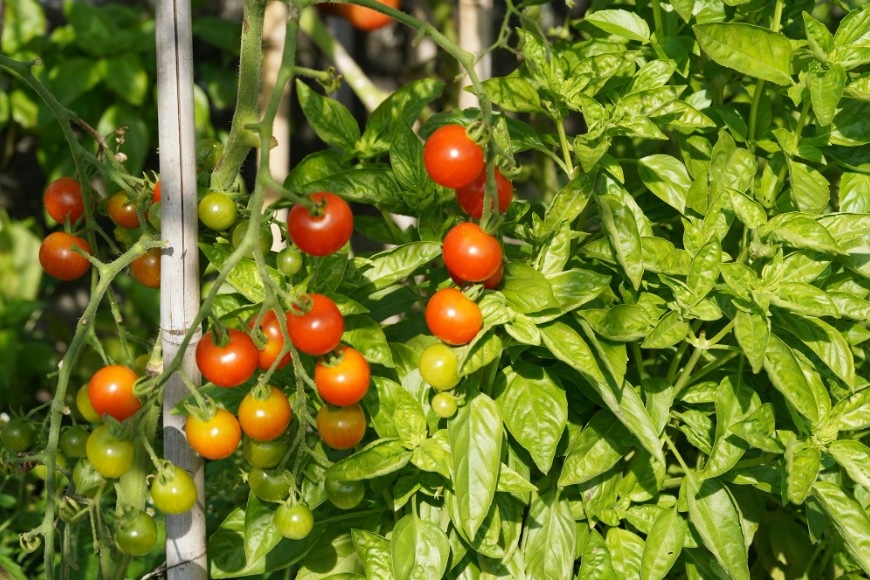
Soil health is the foundation of sustainable agriculture. As farmers seek to reduce chemical use and improve crop yields, biological inoculants have emerged as a game-changing solution. These naturally occurring microbes foster plant growth, suppress disease, and rejuvenate tired soil. Pharmgrade’s Guardian exemplifies how science and sustainability can meet in modern farming.
What Are Biological Inoculants?
Biological inoculants, or microbial inoculants, are beneficial bacteria, fungi, or other microorganisms introduced into the soil to enhance plant health. Unlike synthetic chemicals, they work in harmony with the soil’s natural biology.
They fall into several categories:
- Rhizobia: Nitrogen-fixing bacteria for legumes. Bacteria form nodules on legume roots and convert atmospheric nitrogen into a form plants can use.
- Mycorrhizal fungi: Increase nutrient and water uptake by extending the root system through fungal hyphae that penetrate the soil more effectively than roots alone.
- PGPR (Plant Growth-Promoting Rhizobacteria): Stimulate root growth and plant immune responses by producing natural growth hormones and antimicrobial substances.
- Biofertilizers: Improve nutrient solubilization and availability, helping plants absorb essential elements such as phosphorus, potassium, and iron.
How Biological Inoculants Work in Soil
These microbes interact with plant roots to form beneficial relationships. For example, mycorrhizae extend the root system’s reach, helping plants absorb more water and minerals. Bacillus strains release antimicrobial compounds to fend off pathogens.
Benefits include:
- Enhanced nutrient availability: Microbes convert unavailable forms of nitrogen, phosphorus, and potassium into forms plants can use.
- Competition with harmful microbes: Beneficial microbes outcompete pathogens for space and resources.
- Production of growth-stimulating hormones: Such as auxins and gibberellins, which encourage root and shoot development.
Key Benefits for Soil Health
Biological inoculants bring a multitude of improvements:
1. Improved Soil Structure
Fungal hyphae bind soil particles, improving soil aggregation, aeration, and water retention, which enhances root penetration and oxygen availability.
2. Nutrient Efficiency
Microbes unlock bound nutrients and recycle organic matter, reducing reliance on synthetic fertilizers and improving nutrient use efficiency.
3. Enhanced Biodiversity
A robust microbial community fosters balanced ecosystems, improving resilience against pests and diseases.
4. Water Conservation
Improved structure and root depth boost water-holding capacity and reduce runoff, making crops more resilient to drought.
Probiotics vs. Traditional Fumigants
| Feature | Fumigants | Probiotics |
| Impact on Soil | Kills all microbes | Supports beneficial microbes |
| Environmental Risk | High | Low |
| Long-Term Effects | Soil degradation | Soil improvement |
Real-World Results & Case Studies
Growers using Pharmgrade’s Guardian have seen:
- Increased tomato yields by 15%, with better fruit consistency and disease resistance.
- Better root structure and early growth in strawberries, resulting in earlier harvest and higher market value.
- Enhanced grape quality and reduced mildew in vineyards using drip irrigation applications, improving flavor and reducing crop loss.
“Our crops are healthier and soil holds moisture longer since using Guardian. We’ll never go back to chemical fumigants.” – Luis R., Florida grower
Application Best Practices
Application Methods:
- Soil drenching for mature crops: Delivers microbes directly to the root zone for maximum benefit.
- Seed treatment at planting: Protects seedlings from soilborne pathogens and enhances early root development.
- Foliar spraying for supplemental microbial input: Useful for targeting above-ground pathogens or improving overall plant vigor.
Integration Tips:
- Use with regular irrigation systems for even distribution.
- Compatible with most organic and synthetic fertilizers, but check pH and temperature compatibility.
- Reduce chemical inputs gradually while monitoring soil response to allow microbial communities to stabilize.
The Future of Soil Health and Biological Inputs
Industry Shift
As regulations tighten around synthetic inputs, biological solutions are rising. Global demand for bioinoculants is expected to grow at over 10% CAGR through 2030, driven by increasing environmental awareness and regulatory restrictions.
Innovation Drivers
- Precision ag tools for targeted microbial applications minimize waste and maximize effectiveness.
- Smarter soil monitoring systems enable real-time insights into microbial activity and soil health.
- Customized microbe blends tailored to crop type and regional soil conditions enhance efficacy.
Wrapping It Up
Biological inoculants like Pharmgrade’s Guardian are shaping the future of regenerative agriculture. They’re cost-effective, eco-conscious, and capable of boosting soil health. Pharmgrade’s offers solutions to farmers and growers seeking long-term sustainability and better yields, these solutions offer the right balance of science and nature.
Call to Action
Ready to boost your soil naturally? Explore Guardian by Pharmgrade and join the movement toward cleaner, healthier farming.
Frequently Asked Questions (FAQ)
What are biological inoculants?
Living microbes that support plant growth, improve nutrient uptake, and fight off pathogens.
How are they applied?
Through irrigation, seed treatment, or foliar sprays.
Are they better than fumigants?
Yes—because they promote long-term soil health without harmful side effects.
Where can I buy Pharmgrade’s Guardian?
Visit the official Pharmgrade website for product details and ordering.
Sources & References:
